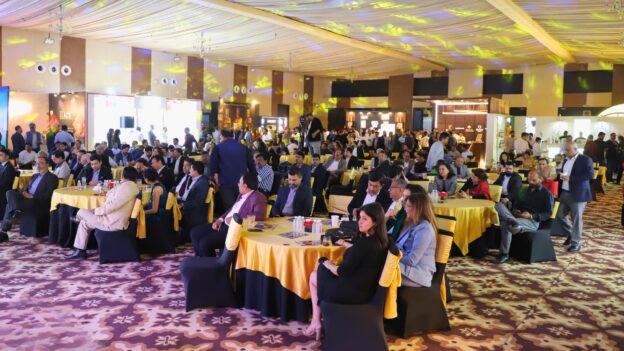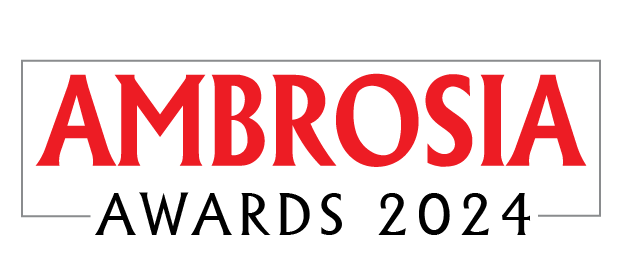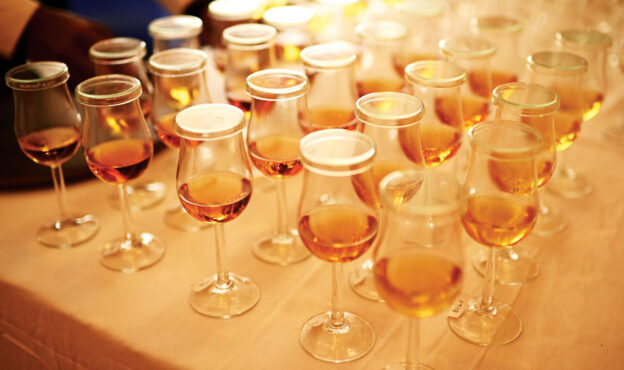• Panel discussion on FTA seeks reduction in tariffs
• Company of The Year is Allied Blenders & Distillers
• Corporate Leader of the Year is Nilesh Patel of Global Beverages Group
• Business leader of the Year is Davide Aiudi of Guala Closures India
• Lifetime Achievement Award goes to Satpal Chaudhry who has held key positions in Mohan Meakins, United Breweries, Shaw Wallace, Empee Distilleries, Him Neel Breweries, and Khoday India.
With India’s alcobev sector showing exceptional growth, SAP Media Worldwide, the publishers of Ambrosia magazine among other publications, reached yet another milestone. On March 21 and 22, it hosted the 20th edition of INDSPIRIT 2025 at Le Meridien, Gurugram. The two-decade journey of INDSPIRIT is a highpoint, reflecting the challenges and opportunities the sector has been navigating all through. And when industry peers met to network, exchange ideas and to chill, it was truly a celebration.
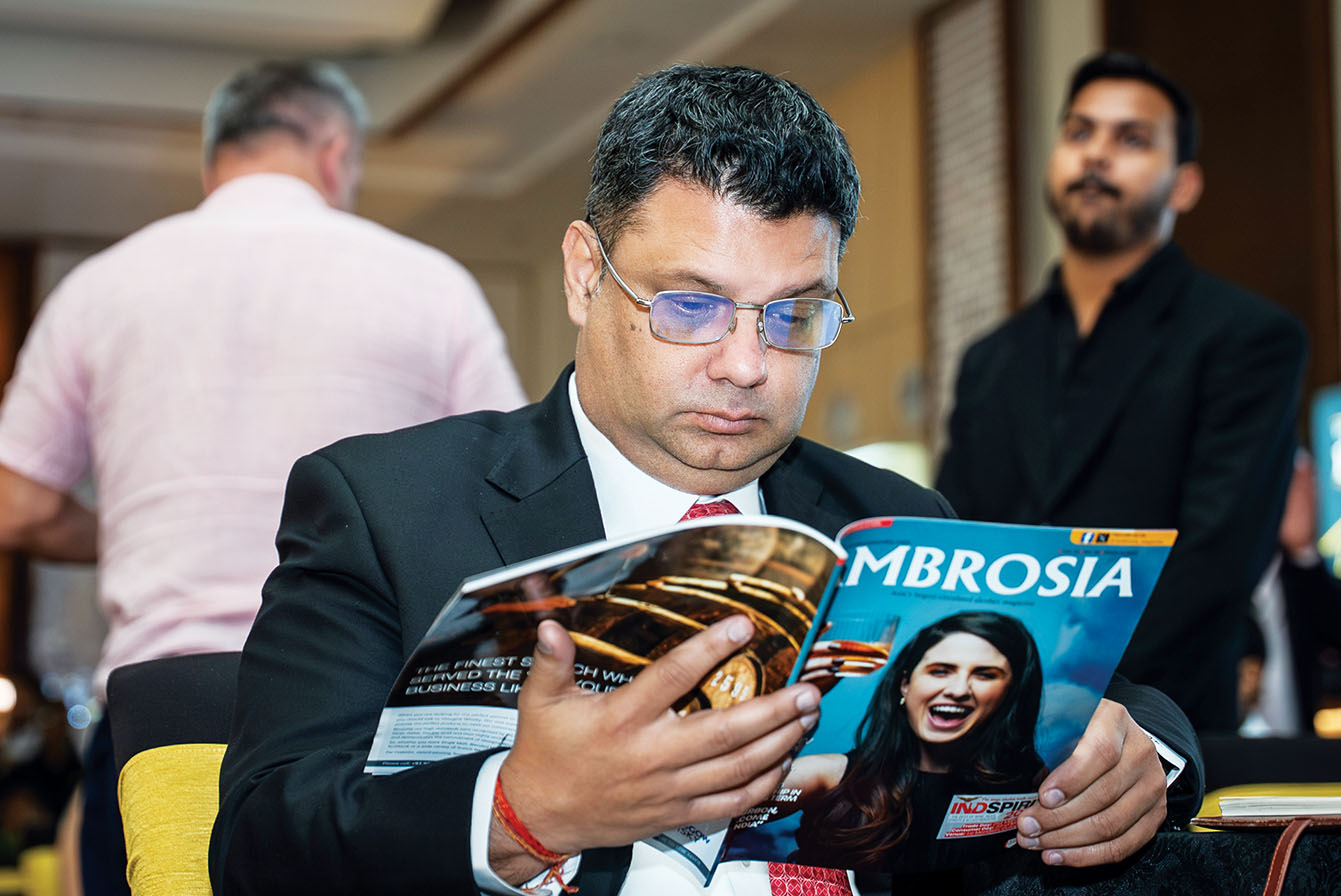
INDSPIRIT is an amalgamation of conference, exhibition, networking and AMBROSIA Awards, organised by Ambrosia. This year the panel discussion was on ‘Free Trade Agreements: Gateway or Roadblock for Indian Alcobev Industry’. The 20th edition also featured a consumer-day, to connect the industry with the end-consumer to taste the many different brands. INDSPIRIT 2025 was powered by Platinum Partner SNJ Group and supporting partners Diageo India and Pernod Ricard.
This year INDSPIRIT had an open consumer day on March 22 wherein consumers got to taste a variety of spirits. Lifting the spirits were DJ Veronika and DJ Zorin, followed by sumptuous buffet. It was day 1 of IPL 2025 cricket and SAP Media ensured that there was live coverage, adding to the zing.
Eminent Jury
The AMBROSIA awards were adjudged by an eminent panel of jury members and they included Stephen Beal (London) – Founding Sr. Consultant, Master of Whisky International Drinks Specialists; Bernhard Schafer (Germany) – A Whisky Expert, Spirit Consulting and A Master of Quaich; Ajoy Shaw – DipWSET Wine Maker & Consultant; Binod Maitin – Independent Technical Consultant; Julie Lee (Taiwan) – Industry Expert and Entrepreneur; and Katsuhiko Tanaka (Japan) – Director, Japan Import System Co.
The jury members for the Packaging category of awards were Prof. K Munshi – Industrial Design Centre, IIT Powai; Shekhar Amberkar – Asst. Director, Indian Institute of Packaging & Head of International Packaging Centre and Jigna Shah Oza – Communication Designer | Design Educator.
Panellists seek rationalisation of tariffs
The panel discussion was moderated by Bhavya Desai, Group Head and CEO of SAP Media Worldwide and the panellists were Suresh Menon, Secretary General of International Spirits and Wines Association of India (ISWAI); Ajay Srivastava, Founder, Global Trade Research Initiative; and Rajnish Singh of Dhvaen Law Practice and consultant on FTA to the Government.

The panellists were in consensus that tariffs on alcobev products are extremely high. Ajay Srivastava said that Donald Trump, the US President was right when he mentioned that India charged 150% tariff on alcohol-based products, followed by passenger cars, while agriculture products it ranged between 30 and 40% and industrial products between 7 and 12%. Trump, he added, was disrupting the world economy with a tariff war.
Suresh Menon said the FTA negotiations were ongoing with the UK and the position of ISWAI members has been that there should be a reduction in tariff on spirits in whatever form they were imported – either bulk or bottled. There was unwanted fear that there would be dumping by cheap Scotch whisky and that would disrupt the domestic market, he said and added that with the trend of premiumisation, this was unlikely to happen. Rajnish Singh advocated a threshold level of tariffs as to bar cheaper products from entering into the country, thus in a way protecting the domestic industry which has been investing substantially in the sector. He referred to the Economic Cooperation and Trade Agreement with Australia which has a threshold level to ensure that cheap wines are not dumped in the Indian market.
The panellists also referred to the Scotch Whisky Association which since 1915, stated that to be called Scotch Whisky, the spirit has to be aged no less than 3 years, malt or grain – replacing the old early 1900s limit of 2 years. The panellists opined that as the rule on 3 year maturation is not going to change and that Indian whisky manufacturers who wanted to export had to keep this in mind, even though the whiskies in India matured faster due to the hot climate.
India third largest alcobev market
Bhavya Desai talked about how India is the third largest alcobev market and was valued at over 52 billion dollars in 2024 and expected to touch 64 billion dollars by 2028, growing at a CAGR of 6.8%.
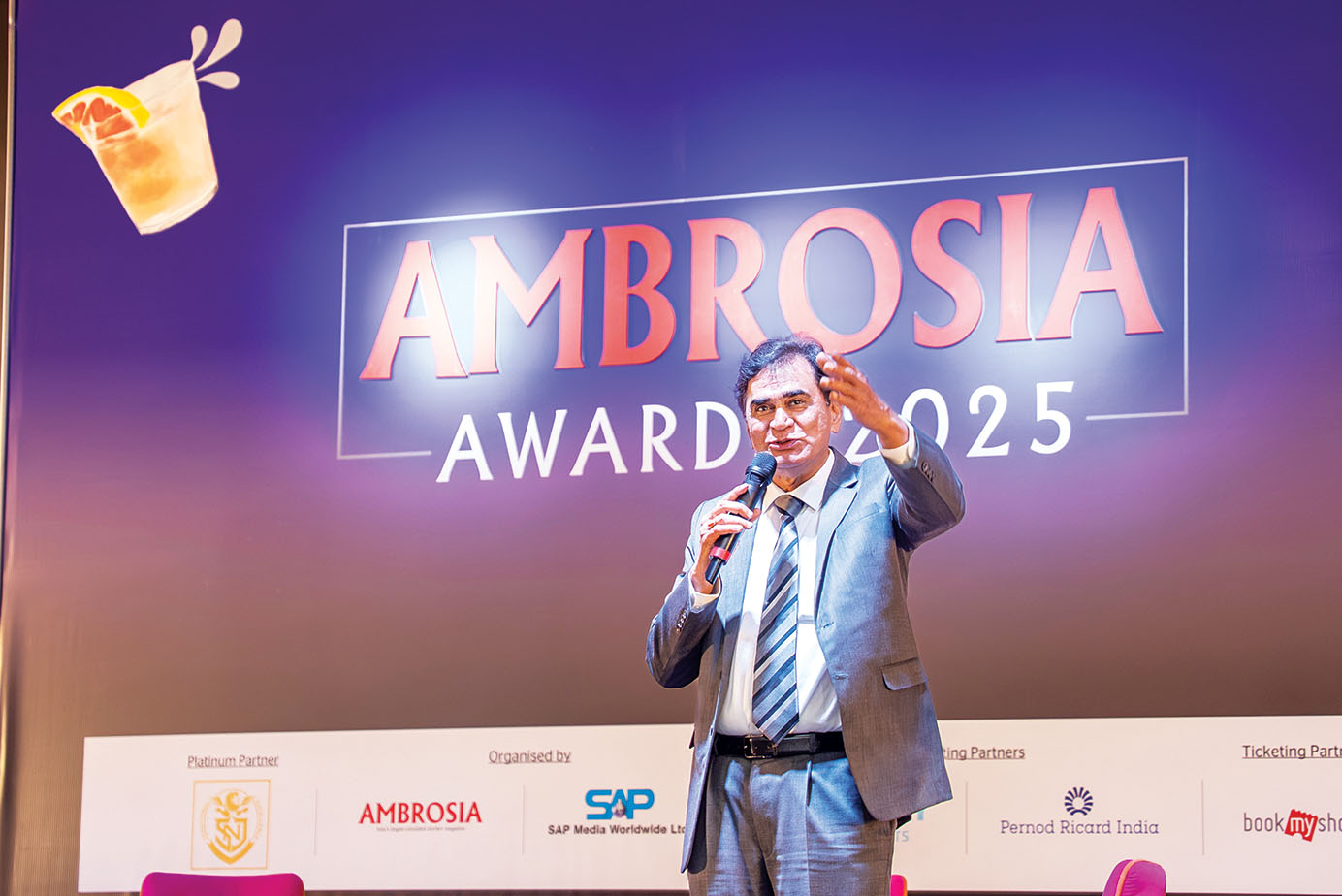
The panel discussion was followed by the much-awaited AMBROSIA Awards. In his opening address before the awards, the Managing Director and Publisher of SAP Media Worldwide, Trilok Desai said, “Despite operating in a highly regulated environment, the industry is witnessing remarkable growth. But with this growth comes a sense of uncertainty. Domestic players are increasingly concerned about the impact of reduced tariffs on Bourbon and the potential phased reduction on Scotch. The worry isn’t limited to premium Scotch—it extends to more affordable Bourbons and Tennessee whiskies, which could directly challenge mid-range IMFL brands.”
Global alcobev giants dominate
Desai added, “Currently, the Indian alcobev market stands at around 410 million cases, growing at a modest rate of 5%. The beer market is slightly larger at approximately 425 million cases, with a healthy growth rate of 8% to 10%, while the country liquor market is around 250 million cases. The world’s top nine alcobev companies operating in India hold a market share of over 52% by value and 43% by volume of the total Indian alcobev market.
Global alcobev giants operating in India bring deep experience from multiple international markets, significantly contributing to the industry’s growth. However, we shouldn’t overlook our own strengths. Indian companies are producing exceptional IMFL products, world-class single malts, and premium gins, along with competitive, high-quality beers that stand toe-to-toe with international brands. That’s something Indians should be incredibly proud of.”
Success of Indian single malts
Referring to the success of Indian single malts on the global map, Desai mentioned how they are inspiring even multinational companies to invest in producing premium spirits within India. “Many are now not only crafting outstanding single malts here, but also looking to export them globally — a true testament to the growing stature of Indian spirits.”
Talking about the AMBROSIA Awards, Desai said, “They are not just about recognition—they’re a celebration of the hard work, creativity, and dedication that have driven the industry forward over the past year.
Tonight, we honour excellence—from outstanding products and innovative packaging to groundbreaking marketing strategies. Over the past 30 years, Ambrosia has witnessed the transformation of the alcobev industry. What was once a market dominated by a few players has become a vibrant and competitive landscape, with Indian and multinational companies alike driving innovation and quality.”
He said that the AMBROSIA Awards have stood for excellence for three decades, thanks to a rigorous and unbiased judging process. “Each year, we assemble an international jury whose expertise ensures that only the very best are recognised. Their insights have highlighted significant improvements in product quality across various categories. Beyond the products, the jury has also acknowledged the remarkable advancements in packaging and design. From labels and bottle shapes to overall presentation, Indian brands are not just meeting global standards—they are often exceeding them.”
Ambrosia launches ASEAN Edition
Desai talked about Ambrosia magazine which has completed 33 years of successful publishing and in 2024 the ASEAN Edition of Ambrosia was launched. The ASEAN edition, launched from Singapore is being circulated across nine ASEAN countries—making Ambrosia the world’s largest combined circulated alcobev magazine. But we’re not stopping there. We’re also exploring the possibility of hosting an international exhibition and awards in Singapore—a significant milestone for the brand.
After Desai’s speech, the AMBROSIA Awards were presented by Air Marshal (Retd) Anil Chopra, a highly decorated officer of the Indian Air Force.
Quick recap of the Ambrosia Awards 2025

